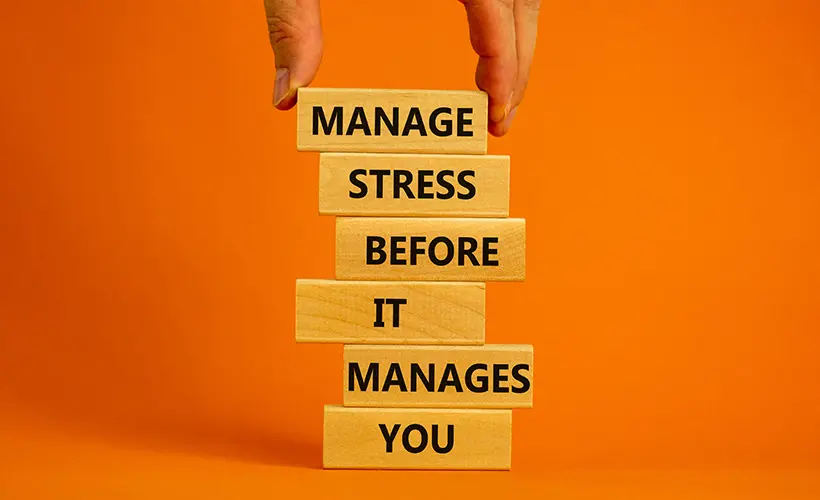
April Is Stress Awareness Month: Tune into Stress Symptoms and Take Action for Better Health!
Is stress bad?
We typically think of stress as being a bad thing, which is not necessarily the case. All stress is not created equal, and stress responses are not always problematic. In fact, positive stress responses help us adjust to new situations, keep us alert, help us build resistance, enhance motivation, help us avoid danger, and improve cognitive function. Researchers have identified two different types of stress: ”distress,” which refers to negative stress (a breakup), and “eustress,” which refers to positive stress (starting a new job). Negative stress is the “bad” stress and is a major contributing factor to both physical and mental health problems.
Stress levels are on the rise, and, as expected, navigating the COVID-19 pandemic is a contributing factor to the increase. Ongoing, low-level stress can be hard to notice, but it can also lead to serious health problems. Prolonged or chronic stress persists at elevated levels for many Americans. According to the American Psychological Association in 2021, 67% of adults said the number of issues America is facing is overwhelming to them. Prolonged stress adversely affects immune system function, worsening conditions such as chronic pain disorders, diabetes, and heart problems. Mental health disorders including depression, anxiety, and PTSD are also linked to negative stress.
What should I look out for?
Are you experiencing stress-related issues without knowing it? Recognizing common stress symptoms can help you manage stress and improve overall health. There are several physical and mental health symptoms associated with negative, chronic stress that are important to watch for, including:
- Chest pain or a feeling like your heart is racing
- Exhaustion
- Insomnia
- Headaches, dizziness, or shaking
- High blood pressure
- Asthma
- Muscle tension or jaw clenching
- Stomach or digestive problems
- Sexual dysfunction
- Weakened immune system
- Anxiety or irritability
- Accelerated aging
- Depression
- PTSD
- Panic attacks
- Unhealthy diet/obesity
- Premature death
What can I do to help minimize stress?
Preventing and managing long-term stress can lower your risk for physical and mental health issues. Being aware of stress and trying to minimize it is important for improving long-term health. You can’t avoid stress, but you can empower yourself and try to help it from becoming overwhelming.
8 stress-reducing tips:
- Relaxation activities such as meditation, yoga, tai chi, and breathing exercises—just a few minutes of focused, deep breathing can be very calming and tame the stress response.
- Practice gratitude and staying positive. Remind yourself of the basic ways in which you are fortunate to help provide some perspective.
- Take good care of your body with a well-balanced diet and regular physical exercise.
- Get enough sleep. According to the CDC, adults need 7–8 hours per night.
- Stay connected to friends and family who offer calm and positive support and minimize contact with people who trigger the stressor response.
- Learn to say “no” to additional responsibilities when you are already too busy.
- Find ways to let go of worry about situations you can’t control or change.
- Focus on the present. Being worried about what to do next or regretful about something that’s already been done in the past will increase stress levels.
When should I seek professional help for stress management?
We all have issues and experiences that cause stress. And as we’ve mentioned, positive stress can be helpful in some situations. That said, long-term negative stress can cause physical symptoms, emotional symptoms, and unhealthy behaviors. If you are unable to manage stress and feel like it’s escalating, talk to your doctor. You should seek medical attention if you feel overwhelmed, if you are using drugs or alcohol to cope, or if you have thoughts about hurting yourself. Your primary care provider can suggest a therapist and/or prescribe medication to help alleviate the stress that causes anxiety and depression.
If you are in immediate distress or are thinking about hurting yourself, call the National Suicide Prevention Lifeline toll-free at 1-800-273-TALK (8255). You also can text the Crisis Text Line (HELLO to 741741) or use the Lifeline Chat on the National Suicide Prevention Lifeline website.
